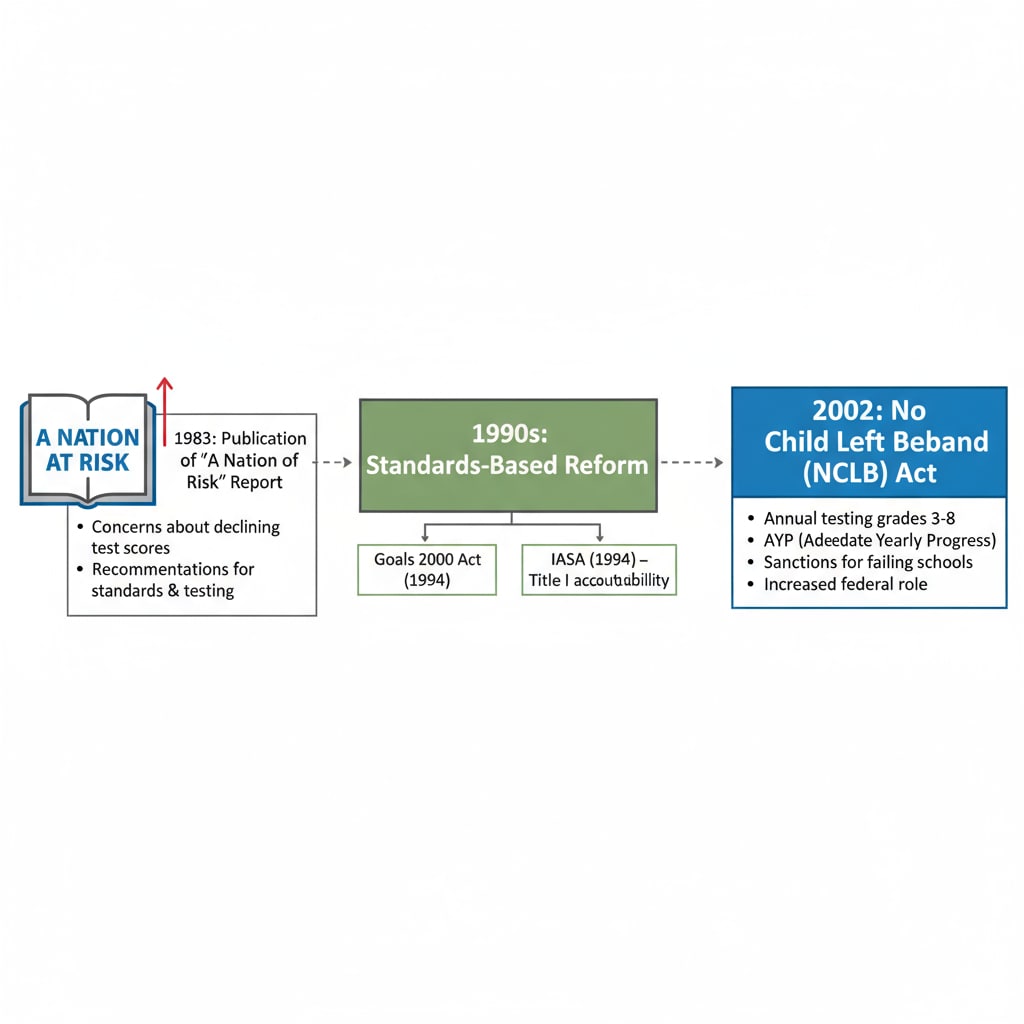The educational accountability system, school leadership, and the NCLB Act have been crucial elements shaping the educational landscape in the United States. The evolution of the educational accountability system in the US has had a profound impact on various aspects of education, especially the relationship between principals and the community.

The Genesis of Educational Accountability in the US
The journey of educational accountability in the US can be traced back to the release of the “A Nation at Risk” report in 1983. This report sounded the alarm about the declining quality of education in the country. It highlighted issues such as low student achievement, poor teacher training, and an outdated curriculum. As a result, it set in motion a series of efforts to hold schools and educators accountable for student performance. For example, states began to implement standardized testing to measure student learning outcomes. A Nation at Risk on Wikipedia

The Emergence of the NCLB Act
The No Child Left Behind (NCLB) Act of 2001 was a significant milestone in the evolution of educational accountability in the US. The NCLB Act aimed to ensure that all students, regardless of their background, achieved proficiency in reading and math by 2014. It mandated annual standardized testing for students in grades 3 – 8 and once in high school. Schools that did not meet the set performance targets faced consequences, such as loss of funding or restructuring. This put immense pressure on school leaders, including principals. No Child Left Behind Act on Britannica
The shift in the educational accountability system from the initial efforts after the “A Nation at Risk” report to the NCLB Act transformed the relationship between principals and the community. It turned this relationship into a highly transactional and adversarial one. Principals were now more focused on meeting the accountability requirements set by the government rather than building strong, collaborative relationships with the community.
Readability guidance: As seen above, we use short paragraphs to present information clearly. Each section focuses on a key aspect of the educational accountability evolution. The use of examples and external links helps to enhance understanding. Transition words like “as a result” and “for example” are used to make the flow of ideas smooth.


